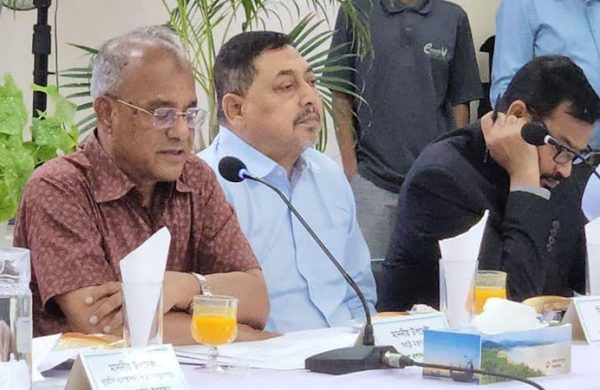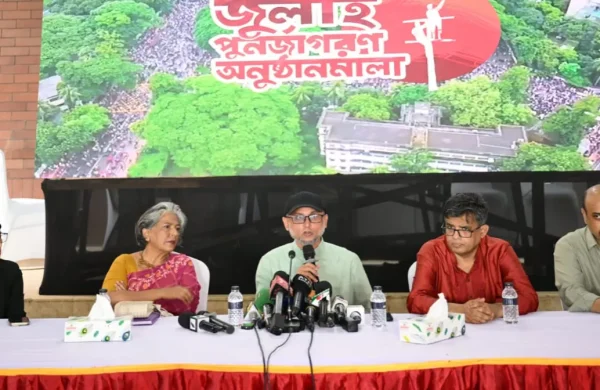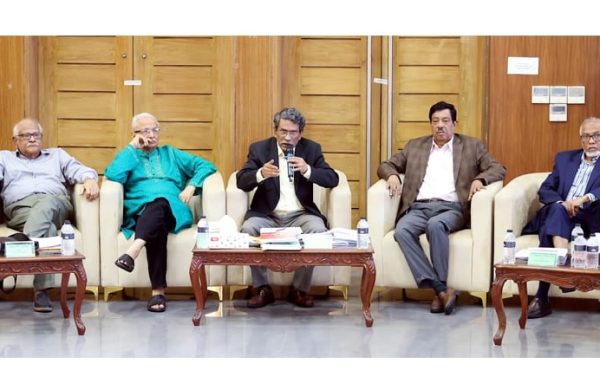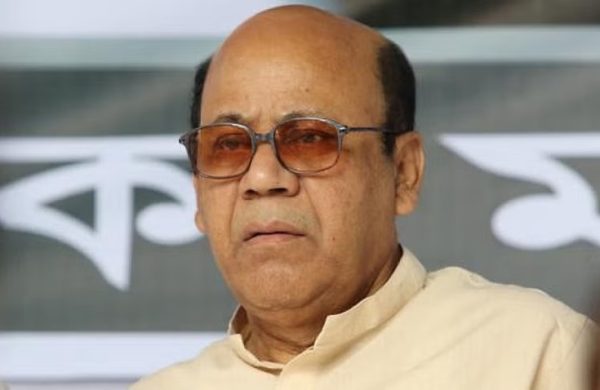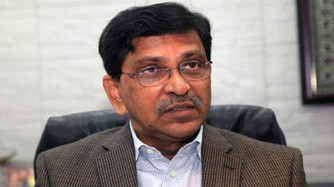NBR split faces staff pushback over ‘experience, expertise neglect’
- Update Time : Friday, May 16, 2025
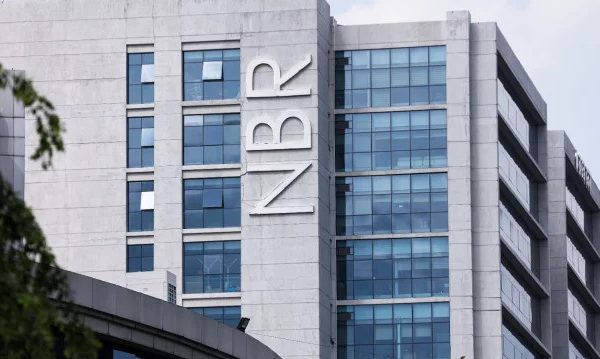
Staff Correspondent:
Amid a pen-down strike, officials and employees of the National Board of Revenue (NBR) have demanded the immediate repeal of the recent ordinance that seeks to split the agency into two separate divisions.
Although asserting they are “not opposed to reform,” the NBR Reform Unity Council, which is a platform representing officials from income tax, customs, and VAT departments, said in a statement on Thursday that the ordinance disregards the significance of experience and expertise in revenue administration.
The interim government issued the ordinance on Monday night, following draft approval by the Advisory Council on Apr 17.
It bifurcates the NBR into a Revenue Policy Division and a Revenue Administration Division.
Despite plans for a swift rollout, the draft ordinance faced backlash once it was published online.
Officers from the Income Tax and Customs cadres voiced strong objections, with their associations calling for the ordinance to be revoked.
The ordinance was formally issued on Monday night, 25 days after the draft approval.
In response, the NBR Reform Unity Council announced a three-day pen-down programme, now in its second day.
However, services related to international passengers, exports, and budget preparations remain outside the scope of the protest.
In their statement, the council argued that the functions of the NBR are “highly specialised and law-dependent,” requiring “long-term experience, professional skill, and a strong ethical foundation.”
According to them, the ordinance ignores this need for expertise.
“The proposed ordinance fails to consider the importance of experience and skills. Without specialised knowledge, there will be inconsistencies in policymaking and disruptions in implementation, which will have a negative impact on revenue collection,” said the council.
The council also alleged that the ordinance includes “deliberate and harmful” amendments that prioritise the interests of specific influential groups at the expense of national interest.
According to their statement, “The ordinance undermines the organisational identity and professional distinctiveness of the NBR, damaging the core economic framework of the nation and challenging the revenue collection process. It also conflicts with the existing constitutional structure.”
They warned that the changes could lead to “unwanted interference” in revenue management, harming the overall efficiency of the system.
Criticising the leadership structure proposed in the ordinance, the council said it merely presented the existing problems in a new format.
“The core issues have not been addressed. Instead, it allows for two separate heads to lead the two new divisions, which is likely to exacerbate the issues.”
Currently, the NBR chairman is appointed from among government secretaries, not from within the agency itself. The council sees this as a major issue in managing such a specialised institution.
They argue the ordinance maintains this practice.
“No real reform has taken place, despite long standing demands from NBR officials. As a result, outsiders will continue to grab important roles, disrupting revenue collection.”
The council criticised the lack of transparency surrounding the reform process. Citing the public release of reports from other interim reform commissions, they noted that the special advisory committee’s report on NBR reform has neither been published on the Internal Resources Division’s website nor shared with the NBR itself.
They claimed that NBR officials were left completely in the dark, even though other reform reports were made public.
The council added, “The sudden decision to dissolve the NBR was taken without any consultation with the agency, raising serious suspicions.”
In light of these issues, the council made the following demands:
- Immediate repeal of the enacted revenue ordinance.
- Public disclosure of the NBR reform advisory committee’s report.
- A coordinated, participatory, and sustainable reform process for the revenue system, developed in consultation with relevant institutions, business associations, civil society, political leaders, and other stakeholders, based on a review of the advisory committee report and a white paper on the financial situation.
The council has mentioned that their pen-down programme will continue on Saturday from 10am to 3pm.


